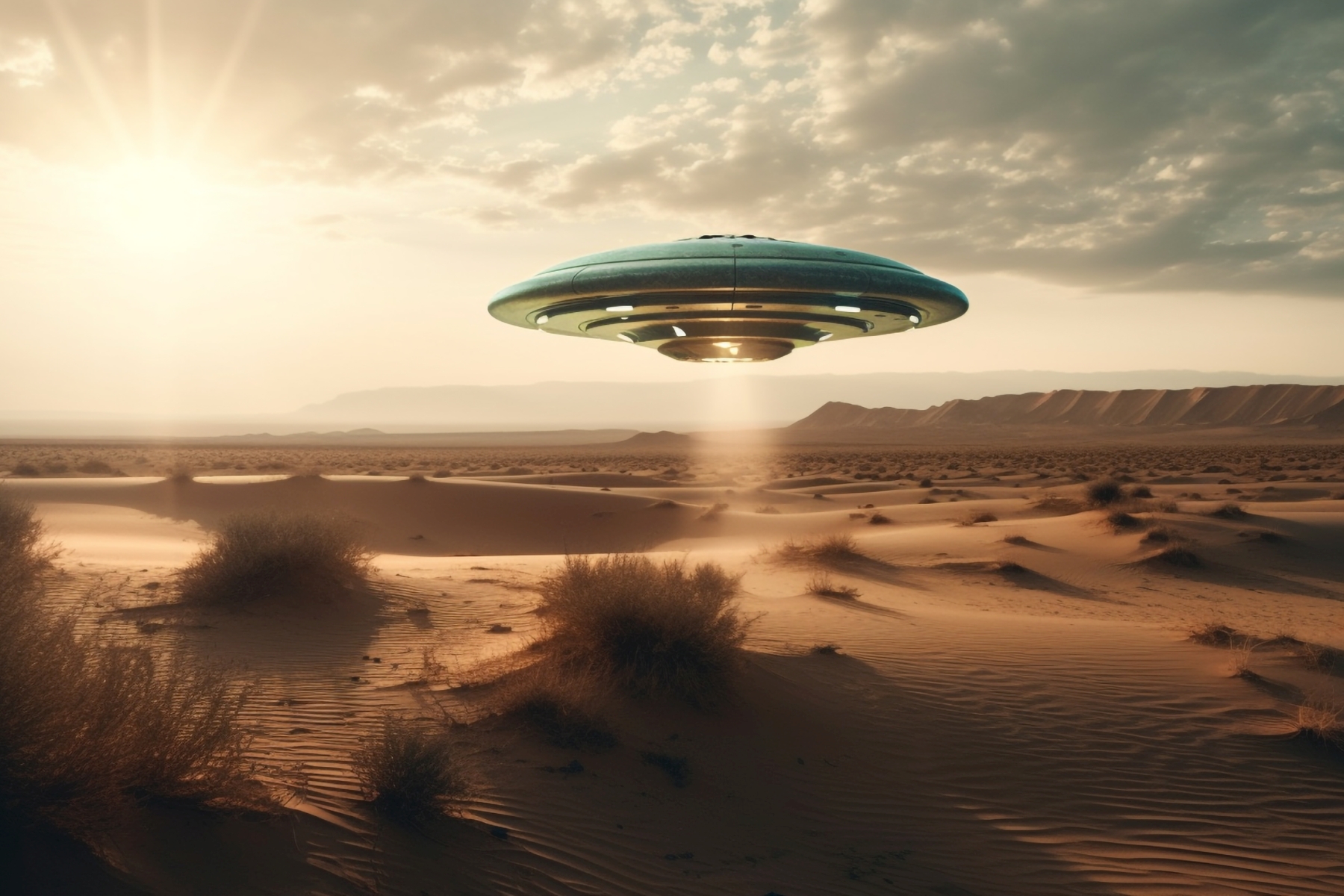
Probably Emil Konopinski would not have remembered the flying saucers cartoon from the New Yorker, had it not been Monday. Any other day of the week, Kate was the most efficient of the Fuller Lodge girls, and the prettiest, with her short blonde hair, her smiling, bright red lips, and that sexy way of swinging her hips on her way to the counter.
But it was Monday, and on Mondays, Kate was a walking ruin. Pale, sluggish, her makeup looking cheap, Kate moved around between the tables like a Zombie, unable to cope with the orders. The hot day —that summer of 1950 had blown off all the records of the decade—and the hurried mood of the patrons didn’t help either. It had been more than fifteen minutes since Emil and his group had taken their usual place at the restaurant, and Kate had not yet brought them the menus.
Fermi was starting to show signs of recklessness, and Emil knew that the risk of him losing his temper and leaving before the girl managed to serve them lunch was increasing every second. And if the great man left, Kate would be in serious trouble. She could even lose her job. Perhaps that would teach her not to show up for work in such a sorry state. But, on the other hand, except on Mondays, Kate was so nice, in particular with him. Emil really did appreciate the fact that she never forgot to refill his cup over and over, have some more coffee, doctor Konoski, she would say, always saying his name wrongly, always smiling. Teller had also noticed that the girl was especially kind with him, and he always wrinkled an eye and said, look how the young lady cares for you, doctor Casanova. But Teller’s patience was as short as Fermi’s, and crossing him was even more dangerous. One of Emil’s favorite private jokes—being classified material it had to be private—was to liken Fermi with a neutrino, as fast as light in his mental calculations, and indifferent to everything but work. He only interacted with reality every now and then, but on those rare occasions he could explode like the atomic bomb they had built together. But Teller was, even in his good days, like the new hydrogen weapon that they were so close to assembling. And the new H-bomb was a thousand times more dangerous than the deadly shells they had dropped over Hiroshima and Nagasaki. Emil preferred not too think too much about that. He had seen the pictures, of course, and had been briefed, like everybody else, on the reasons. He knew that all that destruction had, probably, saved many lives in the end… And yet, there was this voice inside his head, repeating stubbornly, wrong, wrong, wrong.
And so, Emil decided to do something to help Kate and mute the voice. He reached into his pockets and produced the New Yorker cartoon that he had cut out carefully from the magazine that morning.
“Look”, he said, handing the picture to the others. “Pretty cool, don’t you think?”
The cartoon showed a bunch of Martians, all wearing a little hat, topped with a small antenna. The little green men—looking more like gnomes in pajamas than true aliens—had, apparently, landed in the city, and were busy carrying all the waste bins they could find to their flying saucer. The picture illustrated a sarcastic article in which the columnist accused the aliens of stealing the waste bins that were disappearing massively from the streets of New York over the summer.
“¡Nuts!” said Teller, bursting out in one of his explosive laughs, while he punched Emil in the shoulder. “¡Journalists are just nuts!”
Fermi examined the drawing with the serious concentration that was his trademark. Emil could almost hear the wheels, spinning so fast, in his wonderful brain.
“¡A war!” roared Teller, her Hungarian accent as thick as ever. “ We have just survived a fucking war and those damned journalists have nothing better to do than talk about Martians?”
“New Yorker’s joke”, offered Emil. Meanwhile, he noticed, Kate, alarmed by Teller’s bellowing, was waking up and hurrying towards their table, menus in hand.
“Sure”, agreed Teller. “But half of the city’s papers had taken the bait and are wasting ink speculating whether the UFOS are already here, quoting every crackpot who has seen little green men. ¡UFOS! A Russian nuke can hit us at any moment and people have nothing better to do than discuss UFOS.”
“It is a reasonable theory”, said Fermi.
Teller crashed his huge fist on the table, propagating a small quake among the ice that filled the large glasses of water that Kate had just brought.
“What do you mean Enrico? Is it reasonable that the newspapers worry about the Martians, rather than the Russians? ¿Is it reasonable than the summer’s hot topic is the fate of New York’s waste bins?
“The model is pretty good”, insisted Fermi, unperturbed, pointing to the cartoon with a tanned finger. “It explains at the same time the vanishing of waste bins and the observation of UFOS.”
“Seriously, guys”, intervened Herbert York, who had been quiet so far, too busy reading a paper—and scratching on it with his red pen— to pay them any attention. “What if they were really here?”
“Nonsense!” dismissed Teller. “The distance between stars is huge. Light needs four years to arrive here from Proxima Centauri, our closest neighbor. At what speed can one of your flying saucers travel, Herbert? Ten percent of light speed seems too much already. So, forty years to come from the next corner of our neighborhood. What is the distance to the galaxy’s center, twenty thousand light years, perhaps? Little green men would need two hundred thousand years to come from there. Seems like quite a long journey just to steal a few waste bins, don’t you think? ”
“This guy claims that special relativity is wrong and light speed is not a limit”, said York, slapping mercilessly the paper he had been scratching.
“Another?” said Teller. “How many this year?”
“Twenty”, said York, shrugging.
“And how many were wrong?”
“All of them”, asserted York happily. “Including this one”.
“Then?”, said Teller, opening his arms theatrically.
“Well, who knows”, said York. “Perhaps aliens live much longer than us and can afford space travel. Or perhaps they hibernate.”
“Robots”, said Teller. “They would probably send robots to steal our waste bins. Maybe they need the metal. What do you think, Enrico?”
“Think?” Fermi was distracted, chasing one of his bright ideas, uncoupled, us usual, from the rest of the World. “Think about what?”
“Little green man stealing waste bins”, said Teller.
“Oh. About ten percent probability, I would say”.
Everyone laughed. “Ten percent probability” was the curious way in which Fermi referred to something impossible.
“There you go”. Teller blew his nose in the napkin that Kate had just put in front of him, together with the menu. “I’ll have a burger, honey.”
“Same for me”, said Emil, feeling much better. The crisis was over, and Kate would survive one more Monday.
“And for me”, said Herbert.
Fermi ordered black coffee and a tiny sandwich. He was eating less and less, noticed Emil. He had the chilly intuition that perhaps it would not be long before the great man decoupled for good and became a true neutrino.
“We have enough with the Russians”, said Teller, without letting go of his obsessions. “No need for Martians too, thank you”.
“Maybe they are friendly”, said Herbert.
“No way”, answered Teller, with a sardonic smile in his strangely feminine lips. “Anyone having space travel technology would also have much better weapons than us. Better if they can’t come. Because if they do, we are all toast”.
“Maybe not”, dared to say Emil, now that Kate was safely off to the counter with their orders. “Perhaps a civilization more advanced that ours would also be morally superior”.
“Bullshit”, cried Teller, punching him again, not very lightly, in the shoulder. “Do you think that we are morally superior to the Russians? Do you think they don’t love their children, or their dogs? They are good guys, the ruskies, most of them anyway. So tell me. Why in Hell are we building our little toy? Why do we need Castle Bravo if they are so nice?”
“Not so loud, Edward”, hushed York.
Teller looked around him, almost as if he expected to be surround by KGB spies. Castle Bravo was the code name of the H-bomb that should give them an edge over the Russians. Or so the generals, and Edward Teller, hoped. A thousand Hiroshimas in a single artifact, enough to erase Moscow from the face of the Earth. For the second time in the morning, Emil felt a chill running down his spine.
“Anyway, then”, concluded Teller, in a lower voice. “Russians or Martians, same story. Morality is not important here. Megatons are all that counts, and any alien who can get here is bounded to have more nukes than us. I’m just happy that light travels so slowly, guys.
Kate arrived with the orders. In spite of the deep lines running under her eyes, and the lousy makeup, she was pretty. And smiled, smiled as always, while she poured coffee into his cup. Probably, Emil thought, somewhere in Russia, a pretty girl like her was smiling to a physicist who also loved his children, and also worked on a hydrogen bomb capable of erasing New York from the face of the Earth.
“Like her, don’t you, Casanova”, said Teller, with the mouth full of meat.
Before Emil had a chance to reply, Fermi left his cup of coffee on the table—he had not touched his sandwich yet— and said:
“But where are they?”
Amazing, thought Emil, the way that even Teller would shut up when Fermi fired off one of his torpedoes. Everyone at the table knew that he was not joking. Once again, his amazing mind had reached further than everyone else’s.
“Let’s see”, Fermi took his pen and started shooting numbers with it over the paper napkin. “Let’s say that there are about hundred billion starts in the galaxy. Certo?”
It was inevitable, when Fermi was thinking deeply, that he leaked a few words in Italian. The pen spilled numbers, which spread, along with the ink, all over the porous tissue of the napkin.
“How many stars will have a habitable planet?”
“Say ten percent”, answered Teller, who had dropped his burger and was as concentrated as Fermi in the argument. The man could be nasty, but his talent was a close match to that of the master.
“Ten percent, giusto, giusto. So we have 10 billion planets good for life. In how many of these does life actually appears?”
“Perhaps in all of them”, said Emil. “I know a couple of chemists, Stanley Miller and Harold Urey, who are working to demonstrate experimentally Oparin’s theories”.
“I agree”, said Teller. “Oparin was right, in spite of being Russian. Give me a good planet, with plenty of water, hydrogen, methane and ammonia, and life is unavoidable.”
“I don’t see it this way”, said York. “On the contrary, I am convinced that life is a rare miracle. Perhaps unique to this planet.”
“A miracle”, said Fermi, with one of his shy smiles. “Ten percent then. We’ve got a billion planets with life. In how many does intelligence appear?”
“In none”, said Teller, shaking his large head, pessimistically. “Including this one”.
“If life is a miracle, intelligence is an even larger one”, agreed York.
“Ten percent then, va bene. We are left with hundred million planets where intelligence blossoms. Of these, maybe ten percent develop an advanced civilization. Of which, another ten percent will develop way before us, say one to one hundred million year earlier. Vero? Thus, a million very advanced civilizations, which could have invented space travel a million years ago. Even if they travel at ten percent of light speed, as Edward suggests, they have had plenty of time to explore and colonize the whole galaxy. Certo ragazzi?
“I see your point, Enrico”, said Teller, without a trace of irony in his voice. “They should already be here”.
“Exactly. We should have seen them long ago. Or at least we should have heard them”.
“Radio signals”, said Emil. “Of course. The galaxy should be full of communications.”
“Perhaps it’s true that they’re stealing the waste bins after all”, offered York, with a smile. He was the only one in the group unmoved by the argument. His beliefs were too strong to let him take the matter seriously.
“Not a joke, Herbert”, said Teller, dryly. “Enrico just nailed it. Where are they? The figures are very clear. Even if you give or take a couple of orders of magnitude, the result is still the same. We should have already seen the fucking Martians, unless they are hiding. And why should they hide from us, if they are technologically superior? I don’t get it. “
“I wouldn’t lose too much sleep thinking about this”, said York.
“Perhaps you should, Herbert. Ignorance can kill you”.
“Sometimes ignorance may be bliss”, argued York, with a priestly smile.
“Really? Ask around Hiroshima and Nagasaki, about ignorance. Perhaps they were also convinced that nothing wrong could happen to them, right until the moment that Little Boy and Fat Man hit them.”
“Can’t we let Hiroshima and Nagasaki alone?”, said York, looking hurt. “We were talking about…”
“We were talking about a serious question”, cut Teller. “We were trying to understand why a galaxy, which should be buzzing with the communication of civilizations, is silent. We were trying to understand why aliens seem to be hiding. I can come with a number of answers. None of them is good for us. And you know what? If everybody is silent, perhaps we should be quiet too. But we are just making more and more noise, sending radio waves to the galaxy, telling everyone where we are. Not smart, dear boy. Not smart.”
Third chill, thought Emil, and this one run all the way to his gut, freezing the burger that he had just eaten, crystalizing it into a solid mass. Emil took a deep breath, trying to control the sudden nausea.
As if feeling his anxiety, Kate approached, brandishing the coffee pot.
“More coffee, doctor Konoski?”
Emil sighed, grateful, and held his cup towards her smile, painted in red.




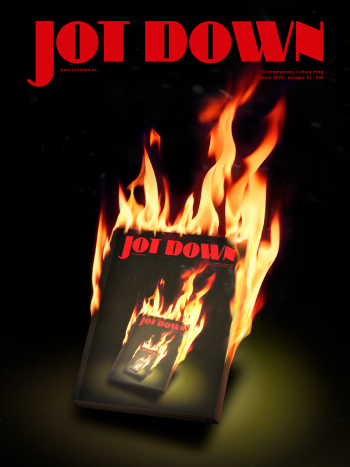
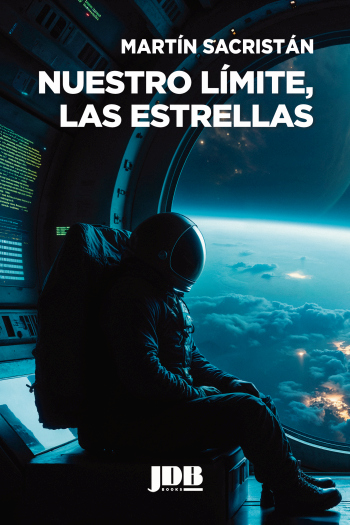
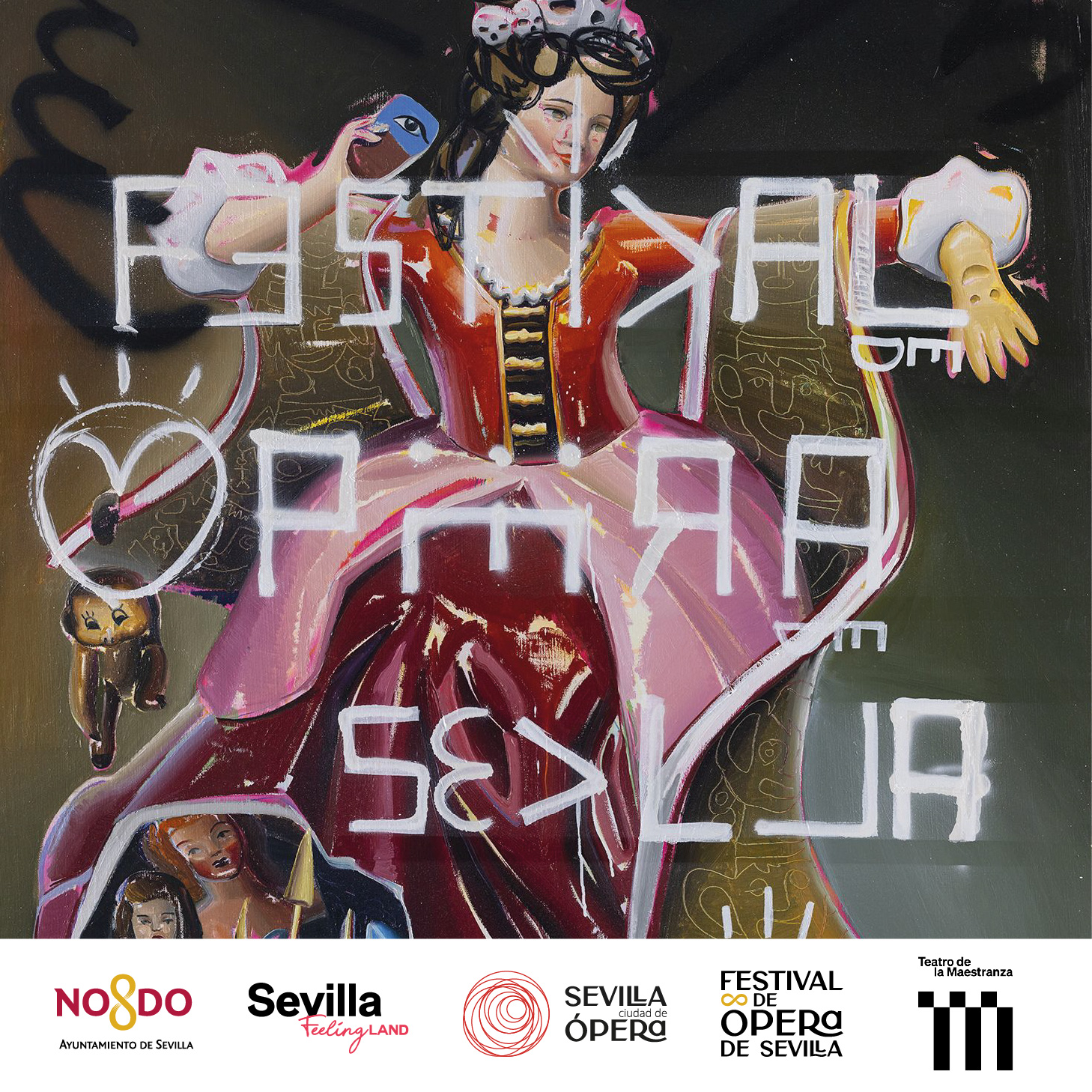

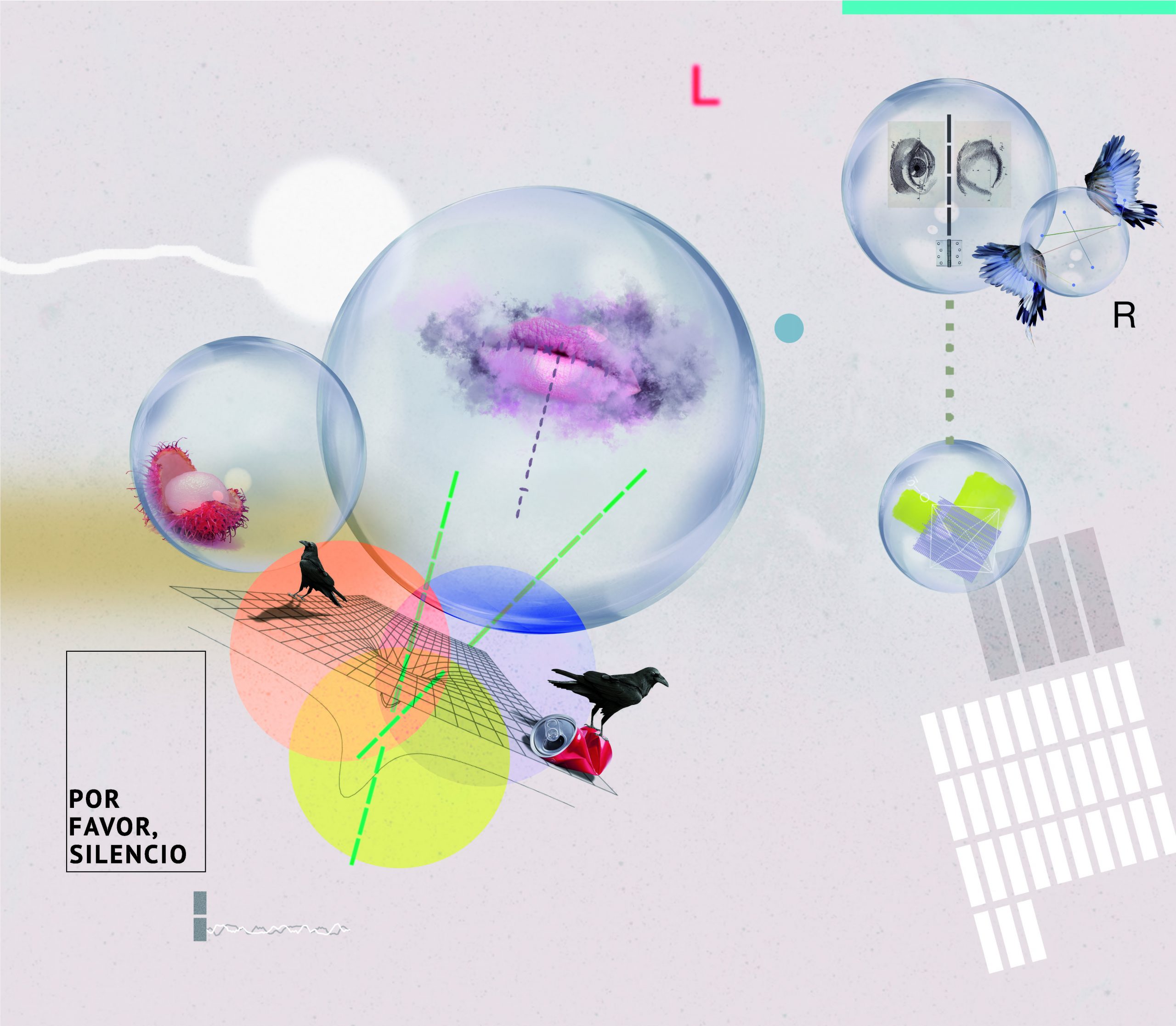
Pingback: Fermi en Los Álamos - Revista Mercurio